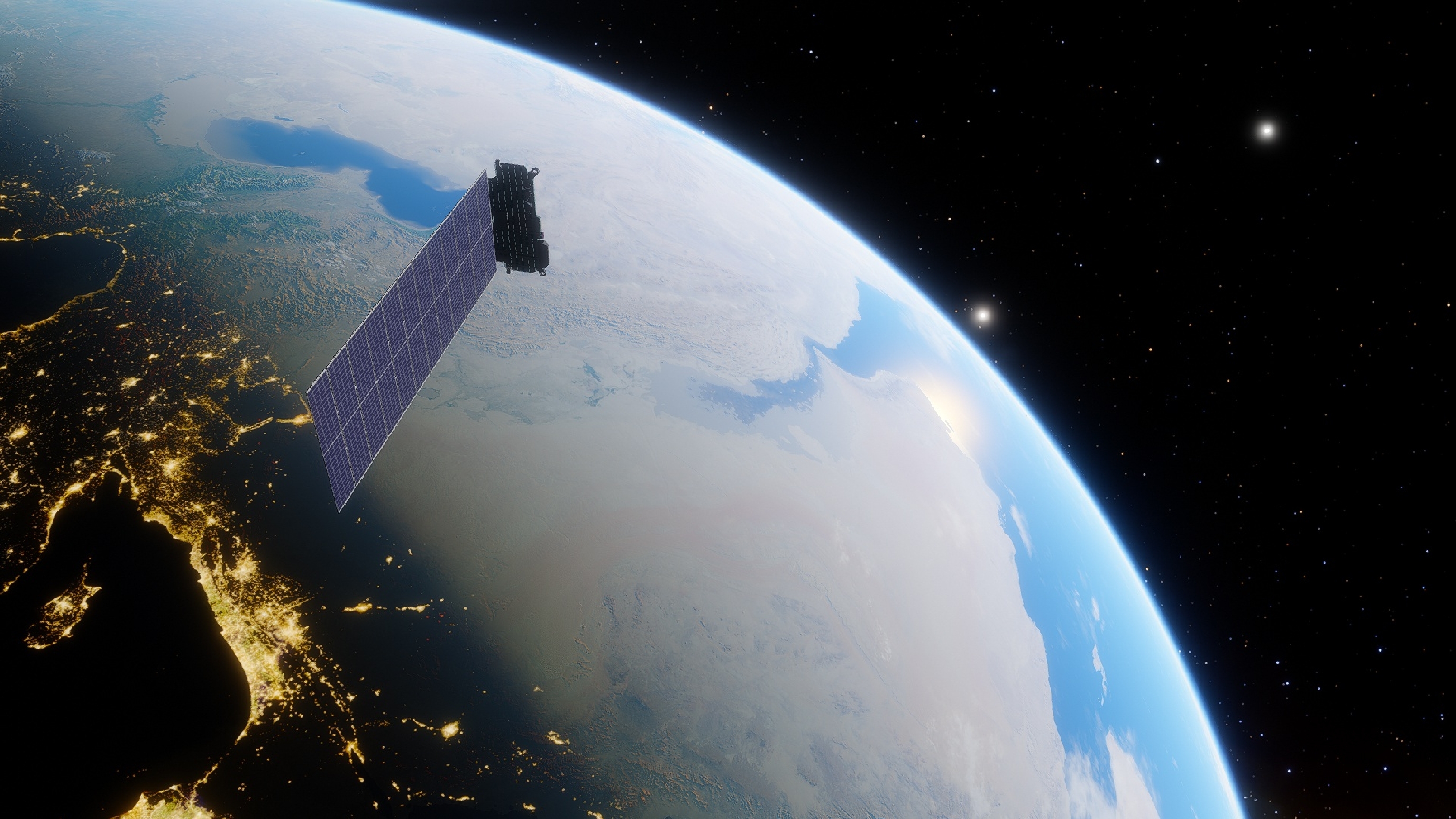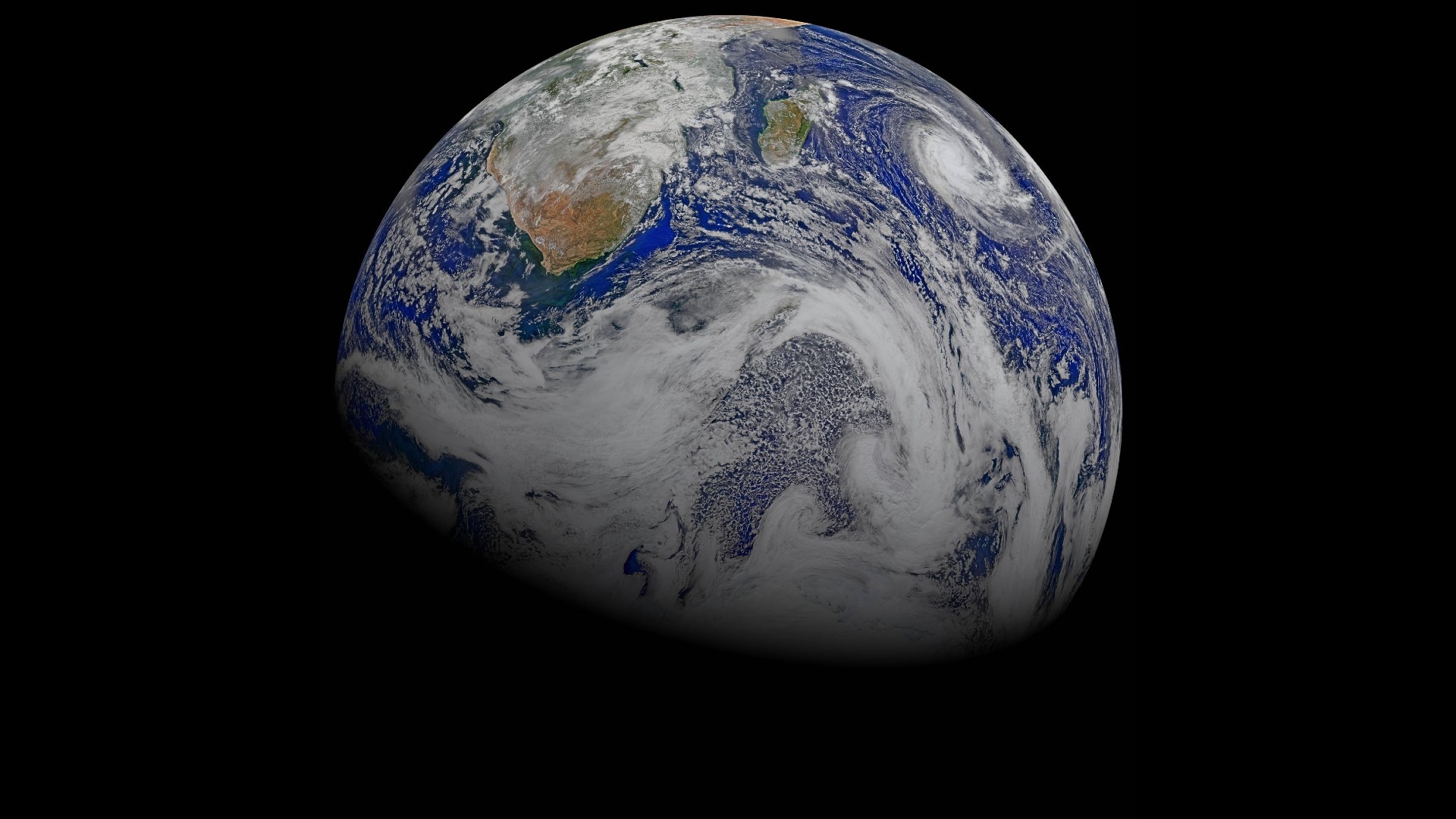SpaceX activates nearly 100 Starlinks in Iran amid country-wide protests: report
Starlink could allow Iranians more freedom to access Internet services, according to media reports.

Breaking space news, the latest updates on rocket launches, skywatching events and more!
You are now subscribed
Your newsletter sign-up was successful
Want to add more newsletters?

Delivered daily
Daily Newsletter
Breaking space news, the latest updates on rocket launches, skywatching events and more!

Once a month
Watch This Space
Sign up to our monthly entertainment newsletter to keep up with all our coverage of the latest sci-fi and space movies, tv shows, games and books.

Once a week
Night Sky This Week
Discover this week's must-see night sky events, moon phases, and stunning astrophotos. Sign up for our skywatching newsletter and explore the universe with us!

Twice a month
Strange New Words
Space.com's Sci-Fi Reader's Club. Read a sci-fi short story every month and join a virtual community of fellow science fiction fans!
As Iran reaches 100 days of civil unrest, SpaceX has deployed nearly 100 Starlinks in the region.
SpaceX founder Elon Musk tweeted "approaching 100 Starlinks active in Iran" on Monday (Dec. 26) in response to a tweet showing women walking outdoors in Iran with their hair uncovered, which is technically forbidden under the country's restrictive regime.
Musk, who is also owner of Twitter, pledged in September to activate Starlink in Iran "to advance internet freedom and the free flow of information" to Iranians, according to Reuters. There are approximately 3,300 operational Starlinks in orbit and SpaceX is preparing to boost service with a more powerful "Gen2" set that could launch before 2022 concludes.
"The satellite-based broadband service could help Iranians circumvent the government's restrictions on accessing the Internet and certain social media platforms," Reuters added in the report on Monday.
Related: 10 weird things about SpaceX's Starlink satellites
The protests are not the first to erupt in Iran recently; other demonstrations engulfed the country in 2017-2018 and in November 2019, according to BBC. But the news service terms these new protests as unique, saying people from all levels of society (including Iranian celebrities) are involved to an unprecedented extent.
The 100-plus days of protests are also the longest streak of anti-government unrest since the 1979 Islamic revolution, the BBC said. The country is currently ruled as an Islamic republic and after the revolution, the constitution included a clergy-dominated system overseeing the executive, parliament and judiciary branches of the government, according to Britannica.
Breaking space news, the latest updates on rocket launches, skywatching events and more!
While the roots of the protests are complex, Reuters states that they in part came about due to the death of 22-year-old Mahsa Amini in police custody in September. Amini was arrested due to wearing "unsuitable attire" in public. Media reports widely state that Amini chose not to wear the hijab, which is a mandatory head covering for women in Iran after they reach the age of puberty.
Starlinks were also deployed in 2022 in Ukraine after that country was invaded by Russia in February, an act that tore most space partnerships with other countries apart. Musk briefly threatened to withdraw the service in Ukraine due to cost this fall, but continues to offer Starlink Internet there to this day.
Elizabeth Howell is the co-author of "Why Am I Taller?" (ECW Press, 2022; with Canadian astronaut Dave Williams), a book about space medicine. Follow her on Twitter @howellspace. Follow us on Twitter @Spacedotcom or Facebook.

Elizabeth Howell (she/her), Ph.D., was a staff writer in the spaceflight channel between 2022 and 2024 specializing in Canadian space news. She was contributing writer for Space.com for 10 years from 2012 to 2024. Elizabeth's reporting includes multiple exclusives with the White House, leading world coverage about a lost-and-found space tomato on the International Space Station, witnessing five human spaceflight launches on two continents, flying parabolic, working inside a spacesuit, and participating in a simulated Mars mission. Her latest book, "Why Am I Taller?" (ECW Press, 2022) is co-written with astronaut Dave Williams.
